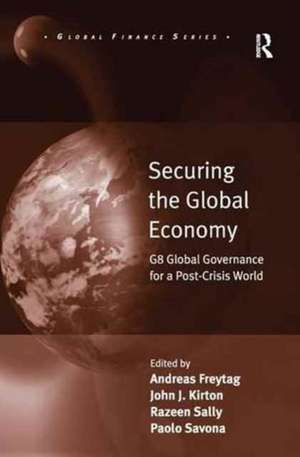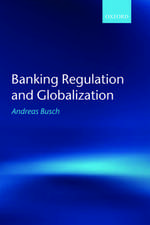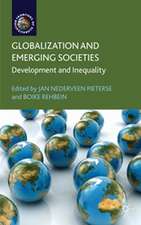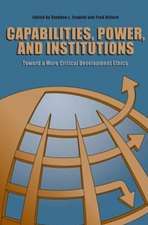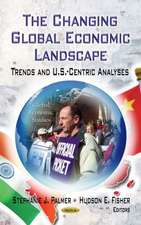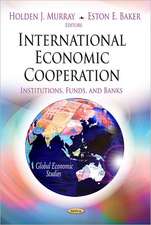Securing the Global Economy: G8 Global Governance for a Post-Crisis World
Autor Andreas Freytag Editat de John J. Kirton Autor Paolo Savonaen Limba Engleză Paperback – 16 noi 2016
| Toate formatele și edițiile | Preț | Express |
|---|---|---|
| Paperback (1) | 469.34 lei 6-8 săpt. | |
| Taylor & Francis – 16 noi 2016 | 469.34 lei 6-8 săpt. | |
| Hardback (1) | 1058.65 lei 6-8 săpt. | |
| Taylor & Francis – 28 feb 2011 | 1058.65 lei 6-8 săpt. |
Preț: 469.34 lei
Nou
Puncte Express: 704
Preț estimativ în valută:
89.81€ • 94.02$ • 74.31£
89.81€ • 94.02$ • 74.31£
Carte tipărită la comandă
Livrare economică 07-21 aprilie
Preluare comenzi: 021 569.72.76
Specificații
ISBN-13: 9781138276918
ISBN-10: 113827691X
Pagini: 238
Dimensiuni: 156 x 234 x 16 mm
Greutate: 0.45 kg
Ediția:1
Editura: Taylor & Francis
Colecția Routledge
Locul publicării:Oxford, United Kingdom
ISBN-10: 113827691X
Pagini: 238
Dimensiuni: 156 x 234 x 16 mm
Greutate: 0.45 kg
Ediția:1
Editura: Taylor & Francis
Colecția Routledge
Locul publicării:Oxford, United Kingdom
Notă biografică
Andreas Freytag, Friedrich-Schiller-Universitat Jena, Germany, John J. Kirton, University of Toronto, Canada, Razeen Sally, London School of Economics and Political Science, UK and Paolo Savona, University of Rome Guglielmo Marconi , Italy
Recenzii
'...provides a fascinating and detailed overview of the policy measures necessary to secure the global economy and to install a global governance for a post crisis world. It includes highly valuable insights into the areas of economics, development, security and governance for those who are interested in Global Economy (Policy Issues). The book is highly recommended.' Friedrich Schneider, Johannes Kepler University of Linz, Austria 'This timely book reminds us that, notwithstanding the G20’s self-declared centrality in the global economic governance architecture, the G8 remains an essential caucus group. That is because, amongst all the "Gs" in global governance, the G8 uniquely straddles the worlds of security and economics which, as the book cogently reminds us, are intertwined in complex ways.' Peter Draper, South African Institute of International Affairs 'In the post-Lehman world, politicians and other movers and shapers of our planet are still struggling to regain firm ground. This book serves as a guide for a rational global governance, both combining the needs for strong security-rules and the advantages of market-based solutions. A must-read for all those dealing with governance issues.' Thomas Ilka, DIHK, Brussels Office 'This collective book has succeeded in mobilizing many talented scholars on a wide diversity of topics - from economic to security and governance issues - around a key issue of our times: the tension between domestic and international action. This tour-de-force makes this book a rich source of thought-provoking analyses for a wide range of readers.' Patrick Messerlin, Groupe d’Economie Mondiale at Sciences Po, France
Cuprins
Part I Introduction; Chapter 1 Securing the Global Economy through the G8, Andreas Freytag, John J. Kirton, razeen Sally, Paolo Savona; Part II Economics; Chapter 2 Multilateral Rule-Based Trade and Exchange Rate Regimes, Chiara Oldani, Paolo Savona; Chapter 3 Escape Clauses and Social Conditions as Threats to the World Trade Organization, Rolf J. Langhammer; Part III Development; Chapter 4 Integrating Developing Countries into the Global Economy: The Role of the G8 and Global Governance, Razeen Sally; Chapter 5 Multinational Enterprises from Emerging Markets, Alan Rugman; Chapter 6 Debt Relief for Developing Countries, Andreas Freytag, Gernot Pehnelt; Chapter 7 The Political Economy of China’s Aid Policy in Africa, Gernot Pehnelt; Part IV Security; Chapter 8 Globalization and Violence, Ronald WIntroductionbe; Chapter 9 Changing Conceptions of Security and the G8, Manuel Fröhlich; Chapter 10 G8 Sanctioning Success, John J. Kirton; partV G8 Governance and Beyond; Chapter 11 The G8’s St Petersburg Summit Achievements and Legacy, Victoria Panova; Chapter 12 Growth and Responsibility: The Leitmotif for Germany’s 2007 G8 Presidency, Berend Diekmann; Chapter 13 Reversal of Roles: Canada, Germany and G8 Reform, 2007–2010, Andrew F. Cooper;
Descriere
An exploration of how and why the G8 and other institutions of global governance deal with increasingly comprehensive and complex economic-security connections. These connections are explored from an intnerdisciplinary perspective, with insights from economists, political scientists and those in the policy world. The book offers policy recommendations about how the global community, through and outside the G8, can better cope with the interconnected economic-security challenges it now faces.
